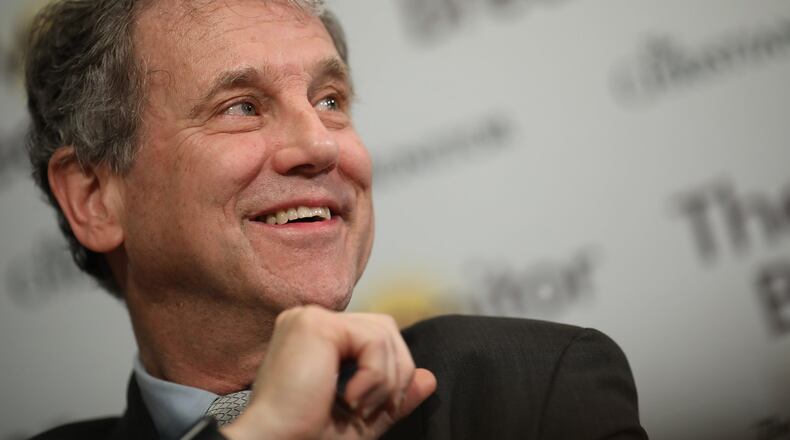“I think Medicare for all will take a while,” said Brown, who is considering a run for the Democratic presidential nomination. “It’s selling it to people who now have insurance that would have to have their insurance plans cancelled and move into a government plan. I think that’s difficult.”
Instead, Brown said he would ask Congress to “build on” the 2010 health law known as Obamacare, which provided health coverage to millions of people through federally subsidized individual private insurance plans or increasing eligibility to Medicaid, the joint federal and state program which pays health costs for low-income people.
“You build on the Affordable Care Act,” said Brown, referring to Obamacare. “You don’t wipe it away and then come up with something new that will take time and cause people angst and anguish to move to a different plan.”
Brown also would give Americans older than age 50 to buy into Medicare, the federal health program which provides health coverage for America’s seniors.
“I want to help people now,” Brown said. “We will see the success of that and that will end up continuing to broaden and expand coverage for so many Americans.”
Brown is attempting a difficult balancing act in appealing to progressive Democrats who dominate the early presidential contests next year in Iowa and New Hampshire. He calls himself a progressive while eschewing what many Democrats on the left want – a single-payer health-care system such as Medicare for everyone.
During a town hall meeting on CNN last month, Harris called for eliminating private insurance. Although other Democrats have not gone that far, a single-payer plan would either scrap or drastically curb private insurance.
In 2017, roughly 156 million Americans were insured by their employers, 74 million are on Medicaid, and 56 million are covered by Medicare.
Medicare for all would eliminate many private plans. Although the government would cover all health costs, it would be financed by new taxes on virtually all Americans, who no longer would pay premiums or co-pays.
A study last year by George Mason University predicted it would cost $32.6 trillion over the next decade.
COMPLETE COVERAGE
Our team of reporters will be covering the 2020 presidential election as it takes shape. Get the latest news on our Ohio Politics Facebook page and on Twitter at @Ohio_Politics
About the Author
